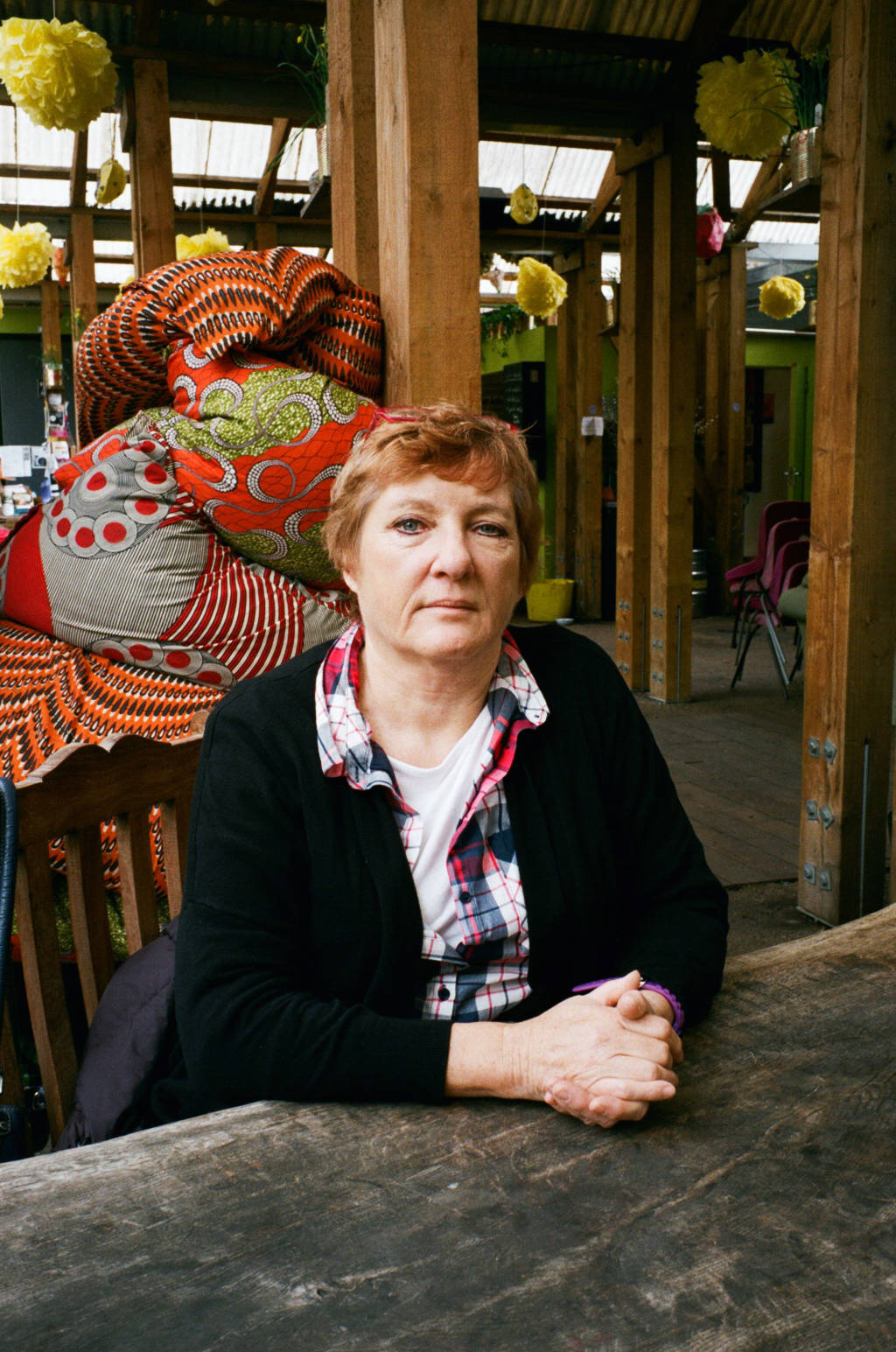Chris O'Mahony
Anyway, they decided they wanted to go to Greenham Common. So we organised an outing, a Reading Centre outing, to Greenham Common, and it was just a hoot, it really was great. It was one of those… Well we hired a minibus, and it was probably the worst minibus in the world. It had, it went so slow, and everyone else was heading to Greenham, it was one of those, it was a massive demonstration day. And Irene was driving, and they were all going… And everyone was passing us, [laughs] all these busloads of women were passing us, and all our women were going, [puts on accent] ‘Put your foot down Irene, put your foot down!’ She was going, ‘I’ve got it on the floor,’ you know, and we were still chugging along at 40 miles an hour on the motorway. Anyway, eventually we got there. And, you know, they probably were the first black women that had been seen at, at Greenham. So, all these, you know, kind of hippie-dippy dykes and everything, you know, sort of, came out, rushing out to embrace them and welcome them. Anyway, they brought along the rum, [laughs] and they were passing the rum around. And it was a really cold day, I think it was November or something. Anyway, and it was one of those hold hands around the base events. So, when it was time to go silent, you know, everyone whispered to everyone else to go silent, and you could see the police and the soldiers all getting really really scared, you know, the silence was much more terrifying for them than the noise and the screaming that had been going on before. There were, you know, thousands upon thousands of women there I think that day. And, we all held hands around the base, and suddenly these boltcutters come out, and they’re being passed from hand to hand. So, you didn’t quite know what to do with them. So some of our women just used them, you know, cut holes in the fence. And the next thing we know, all the fences are coming down, and, we’re inside the base. And, [laughs] and I know, my kids had been really anxious about me going, because there’d been a lot of stuff on the news about it, you know. ‘Don’t get arrested, don’t get arrested.’ And I’m thinking, oh God, they’ll really kill me if I get arrested. Anyway, we got pushed inside. And I kind of got stuck, because my feet got tangled up in some barbed wire, onto which, a piece of corrugated iron landed on top of my feet, tangled in the barbed wire. So I was stuck inside the base when there was a push back, and everybody kind of went back the other way, leaving me stranded. [laughing] And I was really shitting myself. Now one of the women came and got me actually, one of the women, oh I wish I could remember her name, she came and wrestled this piece of corrugated iron off my feet and untangled me and dragged me out again, you know. So thanks to her I didn’t get arrested. But we had such a good day out, they talked about it for, forever afterwards, it was one of their best things ever, you know. It was a really good thing to do.
Chris O’Mahony grew up in north London and left school with no qualifications as without a hearing aid she ‘couldn’t really hear.’ She returned to education at the age of 21, gained a degree and became a literacy tutor, working at Hackney Reading Centre in Centerprise from 1982 – 1986. As a member of the collective she also worked in the coffee bar, bookshop, youth and publishing projects and cleaned the building.
She remembers some of the key events of the time including the miners’ strike, when visiting miners’ wives were shocked to find that in Hackney their supporters all lived in collective houses not separate family homes. She tells how she helped take a group of students on an eventful field trip to the Greenham Common Women’s peace camp and narrowly avoided arrest.
Chris remembers her students, the impact learning to read and write had on their lives, the food they would bring in at Christmas to share and how their different ideas about religion made her ‘more tolerant’ of other people’s faith. She reflects on whether the reading centre should have taught students to write in standard English or their own dialects and wonders if they listened enough to what the students wanted from their study of language. After leaving Centerprise Chris continued to work in adult education.
Interviewed by Ruth Geall.




